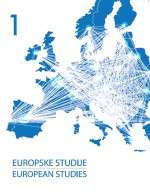Pravo na starosnu mirovnu mobilnih radnika temeljem uredbi o koordinaciji sustava socijalne sigurnosti Europske unije
Eligibility of Mobile Workers for Retirement Pension Based on the Regulations on Social System Co-ordination in the European Union
Author(s): Tomislav SokolSubject(s): Government/Political systems, International relations/trade, Welfare systems, Gerontology, Welfare services, EU-Accession / EU-DEvelopment
Published by: Fakultet političkih znanosti u Zagrebu
Keywords: EU; jurisdictions; mobile workers; retirement pensions;
Summary/Abstract: European Union has from its inception been developing as a sectoral organisation focused on foundation of a common market among the member states. Since its inception in the form of European Coal and Steel Community (ECSC), which was followed by European Economic Community (EEC) and the European Atomic Energy Community (EURATOM), the establishment of free trade zone and the customs union represented the crux of integration process. Against the backdrop of the previously described context, social security and redistribution, including pensions, remained within the area of primary jurisdiction of member states of the communities existing at the time. Irrespective of this distribution of jurisdiction between the European and the national level, pension systems in member states were affected by the European regulations. The reasons for this state of affairs is due to the fact that free movement of labour is considered one of the fundamental rights (in addition to free movement of goods, free provision of services, free business location, as well as free movement of capital) which have been the foundations for the European single market since the inception of integration. Against the backdrop of the previously described context, eligibility for retirement pension required regulation at the European level, in order to ensure that the workers who had exercised the right of free movement, or the right to work in other member states, are not placed in a more unfavorable position due to their mobility compared with the position they would have occupied had they not exercised the previously mentioned right to freedom of movement. This article is aiming to provide an overview of the European legal framework (currently the EU legal framework) for eligibility for retirement pension (paid by the member state) of workers who had exercised their right to free movement and work in a member state whose nationality they do not possess, with a special emphasis on regulations on social security system co-ordination. Consequently, in addition the entitlement of mobile workers to retirement pension, an overview has been provided also of the limits of regulatory autonomy of member states concerning the right to regulate the eligibility for retirement pension within their own pension systems in compliance with the EU laws. The previously mentioned issue is significant also in case of Croatia as the newest member state which hence needs to harmonise its legislation and legal practices with the EU directives. The article comprises of several parts in order to achieve the previously mentioned objective. In the first section, it analyses the primary law of the European Union (primarily the Treaty on European Union and the Treaty on the Functioning of the European Union) which prescribes the distribution of jurisdiction of the Union and the member states in the area of the pension system and the possibility of regulation of the previously mentioned area by the Union. Subsequently, secondary law of the EU is analysed (focusing on regulations on social security system co-ordination) which comprehensively defines the eligibility for exercising the right to retirement pension of mobile workers in the EU, along with the relevant court reports by the European Court of Justice in this area.
Journal: Europske studije
- Issue Year: 1/2015
- Issue No: 1
- Page Range: 81-104
- Page Count: 24
- Language: Croatian

